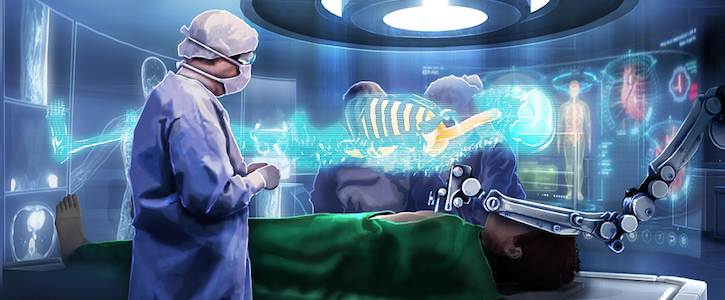The 5 Best Healthcare Analytics News Stories of 2017
These in-depth reads helped guide hospitals through transition, promote innovation, and spotlight threats.

Image has been resized. Courtesy of Brother UK, Flickr.
The past year was a big one for Healthcare Analytics News™.
For starters, 2017 saw the birth of our print and digital magazine. In late summer, we built out our editorial team and exited beta, publishing hard news, features, and columns every day. We covered conferences, produced video interviews with key opinion leaders, and kept up on the research shaping healthcare. Along the way, we grew a stable of freelancers, some of whom with industry and academia credentials and others with leading journalism backgrounds.
So, what did HCA readers get from this effort? Some fine journalism.
We have compiled 5 of the best stories from our inaugural year. These insightful, comprehensive pieces tackle a range of issues, from cybersecurity to big data and analytics. Some appeared in the glossy magazine, while others live only online. Check out our greatest works from 2017 below, and know this: We are just getting started.
An Innovative Way of Collecting DNA Samples Should Have Researchers Salivating. This play-by-play feature begins in a home in Philadelphia, Pennsylvania, where 2 entrepreneurs gather their friends to watch the TV show “Shark Tank.” Why? The business partners appeared in the episode, a meeting with fate that netted their genomic data company, DNAsimple, a $200,000 investment from Mark Cuban. In the piece, writer Danny Funt details how the company beat the odds and how they are trying to forever change research.
The Bots That Want to Drain Your Budget. Across the internet, each day and in surprising numbers, bots are crawling, clicking, and capturing ad dollars. One tech marketing executive set up a fake website, Oncology Tomorrow, whose numbers he boosted using illicit means, to show the scope of the problem. Writer Gautham Thomas details how ad fraud is especially harmful in healthcare, given the desirability of specialized audiences—like physicians. But solutions do exist.
Is AI as Smart as It Thinks It Is? The question garners many different answers. In this probing cover story, editor Ryan Black scans the field of thought, surveying a range of experts and examining the past and future alike. “PR departments and tech journalists are championing the impending AI revolution in healthcare,” he writes, “but voices inside the health industry disagree on whether technology can master the art of medicine.”
Combating the Dark Side of Healthcare. The dark web is frightening. Its name invokes thoughts of murder for hire, exploitation, and drug sales. The mythology, of course, overlooks the deep web’s many legitimate uses. No matter your opinion, healthcare organizations would be smart to better understand this mysterious universe and its threats, writes Karen Epper Hoffman. Medical records, it turns out, sell for much more than credit card information, and the demand is growing stronger.
Fighting Cancer with CAR T and Big Data. When 2 chimeric antigen receptor T-cell therapies gained FDA approval this year, it was big news. Kymriah, Yescarta, and their peers to come have the potential to change how providers treat cancer—and even how we define and weigh value. Senior editor Jack Murtha took a deeper look at the breakthroughs, profiling a Chicago hospital at the forefront of this brand of medicine. The goal? Learn how big data and analytics can guide healthcare organizations as they traverse this brave, new path.